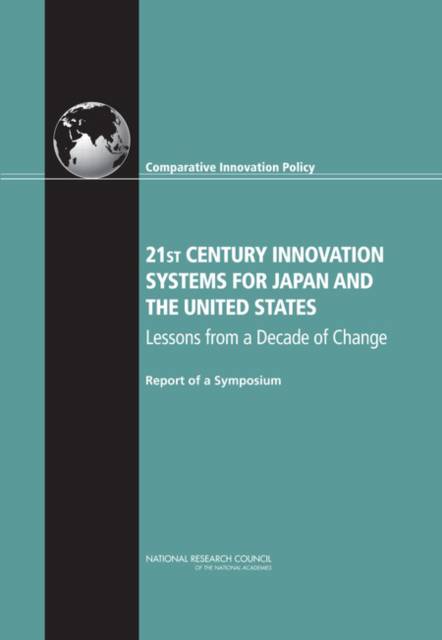
- Afhalen na 1 uur in een winkel met voorraad
- In januari gratis thuislevering in België
- Ruim aanbod met 7 miljoen producten
- Afhalen na 1 uur in een winkel met voorraad
- In januari gratis thuislevering in België
- Ruim aanbod met 7 miljoen producten
21st Century Innovation Systems for Japan and the United States
Lessons from a Decade of Change: Report of a Symposium
National Research Council, Policy and Global Affairs, Board on Science Technology and Economic Policy, Committee on Comparative Innovation Policy Best Practice for theOmschrijving
Recognizing that a capacity to innovate and commercialize new high-technology products is increasingly a key for the economic growth in the environment of tighter environmental and resource constraints, governments around the world have taken active steps to strengthen their national innovation systems.
These steps underscore the belief of these governments that the rising costs and risks associated with new potentially high-payoff technologies, their spillover or externality-generating effects and the growing global competition, require national R&D programs to support the innovations by new and existing high-technology firms within their borders.
The National Research Council's Board on Science, Technology, and Economic Policy (STEP) has embarked on a study of selected foreign innovation programs in comparison with major U.S. programs. The "21st Century Innovation Systems for the United States and Japan: Lessons from a Decade of Change" symposium reviewed government programs and initiatives to support the development of small- and medium-sized enterprises, government-university- industry collaboration and consortia, and the impact of the intellectual property regime on innovation. This book brings together the papers presented at the conference and provides a historical context of the issues discussed at the symposium.
Specificaties
Betrokkenen
- Auteur(s):
- Uitgeverij:
Inhoud
- Aantal bladzijden:
- 304
- Taal:
- Engels
Eigenschappen
- Productcode (EAN):
- 9780309136624
- Verschijningsdatum:
- 1/04/2009
- Uitvoering:
- Hardcover
- Formaat:
- Genaaid
- Afmetingen:
- 157 mm x 229 mm
- Gewicht:
- 612 g

Alleen bij Standaard Boekhandel
Beoordelingen
We publiceren alleen reviews die voldoen aan de voorwaarden voor reviews. Bekijk onze voorwaarden voor reviews.









